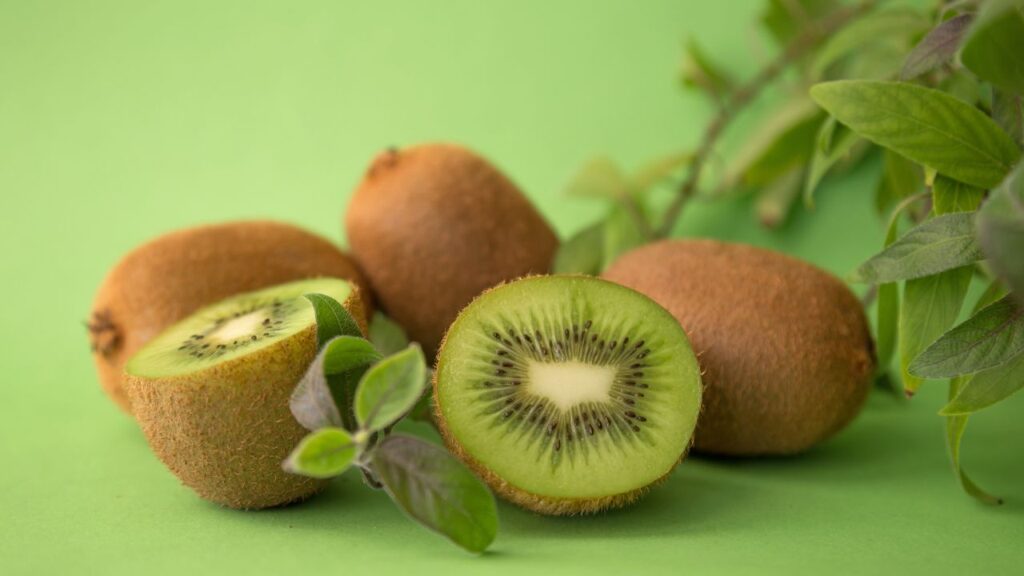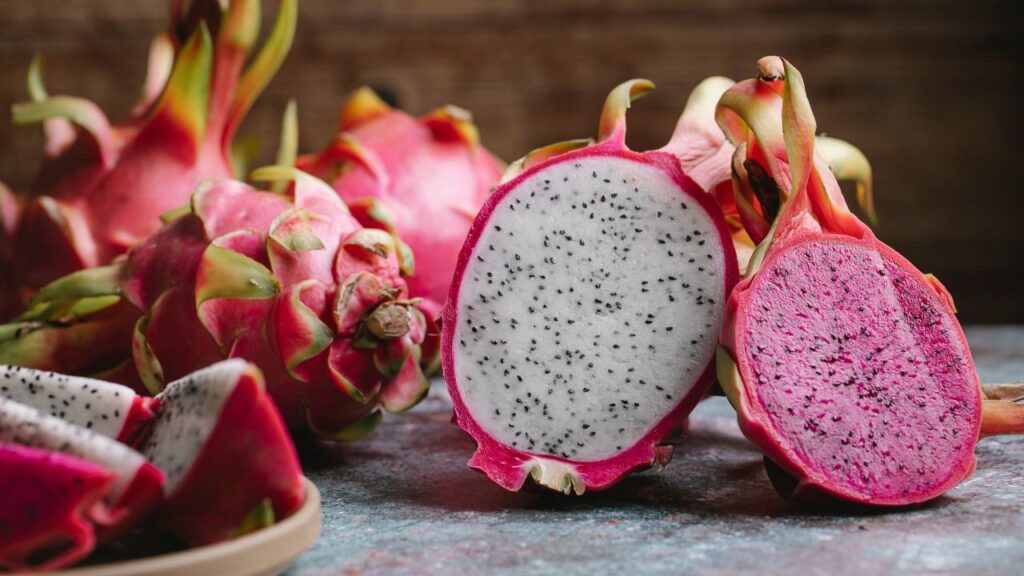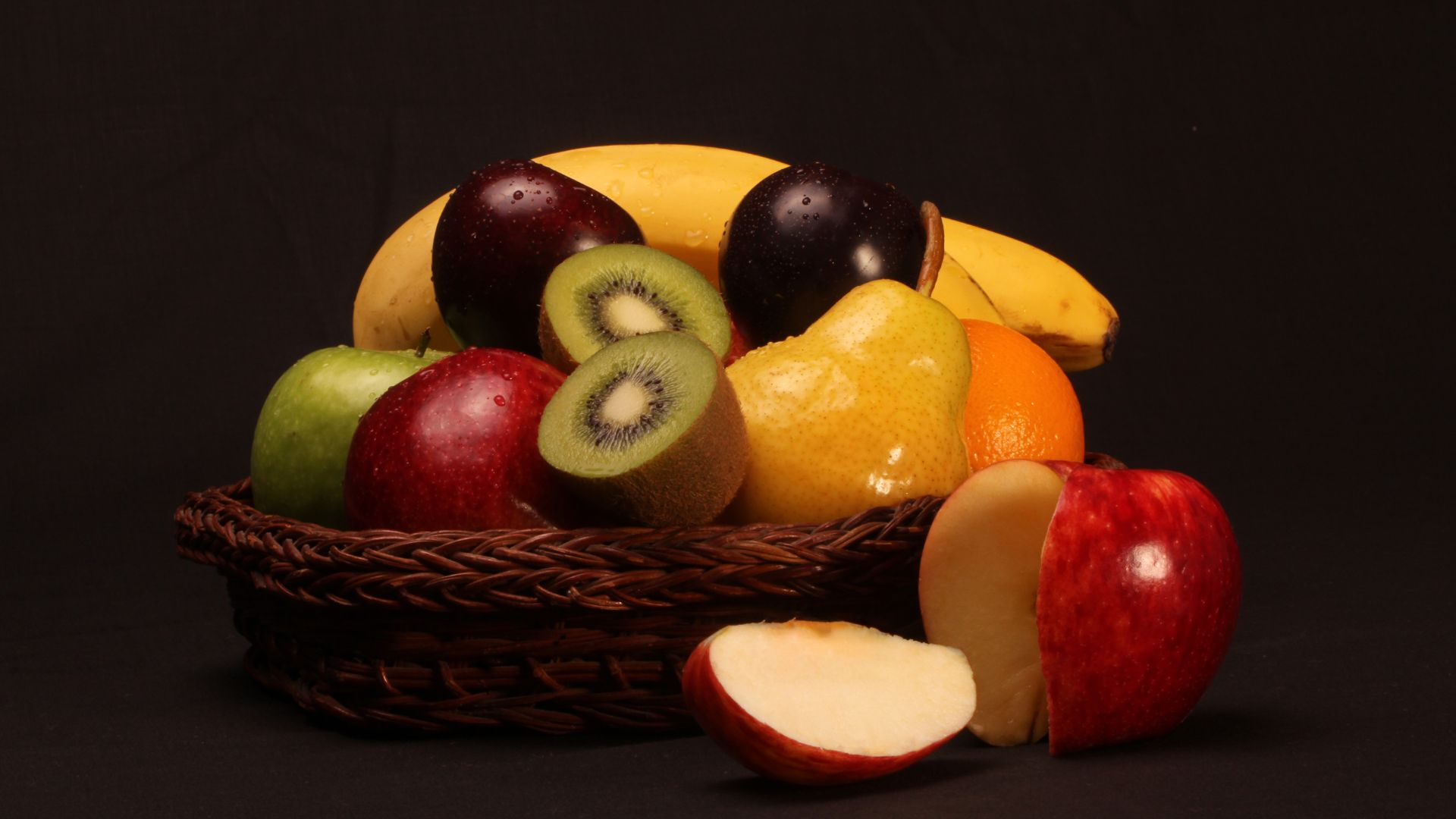Constipation is frustrating, and let’s be honest—it can ruin your day. If you’re tired of waiting for relief, you’re not alone. Many people struggle with irregular bowel movements, but reaching for fiber supplements or laxatives isn’t the only solution.
The answer? Fiber fruits for constipation! They are filled with dietary fiber and a lot of other nutrients that keep your gut healthy. From juicy pears to powerful kiwis, the right fruits can keep you feeling light every day.
So, which fiber-rich fruits work best? How much should you eat? When should you eat them for the best results? In this guide, I’ll share the top fiber fruits, their health benefits, and a lot more in detail. Let’s get started!
Fiber Fruits for Constipation
Eating fiber-rich fruits daily can help ease constipation naturally. They are packed with dietary fiber, keeping your system running smoothly while offering many other health benefits. Let’s explore some of the best fruits for constipation relief.
Kiwi

This might surprise you: Kiwi is one of the most effective fruits for constipation relief. It contains both soluble and insoluble dietary fiber, which helps add bulk to your stool and makes it easier to pass. According to an NIH article, Just 100 grams of kiwi has around 3.4 grams of fiber, making it a fantastic choice for your daily fiber needs.
Plus, kiwis act as a natural laxative due to their enzyme actinidin, which helps speed up digestion. But that’s not all. One of the biggest health benefits of kiwi is its ability to support gut bacteria. The fiber in kiwis works as a prebiotic, feeding good bacteria and improving overall gut health. A healthy gut means better digestion and regularity, which is key if you struggle with chronic constipation.
Kiwis also have a laxative effect without causing discomfort or bloating. Many fiber-rich foods can cause gas, but kiwi is gentle on the stomach. Some studies even show that eating two kiwis per day can help with constipation better than some fiber supplements, like calcium polycarbophil.
Pro tip: If you want to improve your digestive health, try adding kiwis to your breakfast or snack. You can eat them whole, blend them into smoothies, or mix them with yogurt for a delicious and gut-friendly meal.
Dragon Fruit

Dragon fruit might look exotic, but it’s rich in fiber that helps with treating constipation. The seeds inside contain insoluble fiber content, which adds bulk to your stool. In simpler words, it helps move waste through your intestines. This makes dragon fruit one of the best fiber-rich foods for digestion.
Unlike some fruits that only have one type of fiber, dragon fruit has both soluble fiber and insoluble fiber content. This combination keeps digestion balanced—soluble fiber softens stool, while insoluble fiber content speeds up movement through your intestines. This dual action helps with functional constipation, making it a great option for long-term gut health.
There’s more. Dragon fruit juice is also packed with nutrients that support digestion and overall health. It’s rich in vitamin C, antioxidants, and magnesium, all of which help your gut function properly. Some experts in gastroenterology even recommend dragon fruit juice to promote regular bowel movements naturally.
Quick hack: To get the most out of dragon fruit, try eating it fresh or adding it to smoothies and salads. It’s one of the easiest ways to include it in your nutrition plan while keeping your digestion smooth and comfortable.
Plums

Let’s get right into it: Plums, especially dried plums, are famous for their laxative properties. They contain a unique sugar alcohol called sorbitol, which helps pull water into your intestines and softens your stool. This makes plums an effective, natural way to prevent constipation. Plums are also considered high-fiber foods, with about 2 grams of fiber per fresh plum.
Drinking prune juice is another great option. Since it’s made from dried plums, it retains all the gut-friendly benefits while being easy to drink. Just one cup of prune juice provides a gentle but effective way to increase bowel frequency and keep your digestive system running smoothly.
Important Note: Opt for juices with no sugar added. Keep in mind that the added sugar can impact your blood glucose levels.
Pro tip: Eating fresh plums with a few dried fruits daily can help regulate stool passage and prevent chronic constipation. And if you have trouble with your colon, plums are a great addition to your treatment plan.
Apples

Apples are one of the most helpful and easily available fibers found in nature. They are packed with insoluble fiber, which helps add bulk to stool and speed up digestion. One medium apple has about 4 grams of fiber, making it one of the good sources of fiber for constipation relief.
Important Point: Eating whole fruits like apples is much better than drinking juice, as the fiber in the peel is crucial for digestion. For best results, eat apples raw with the peel or bake them for a warm, fiber-rich treat.
Apples are also known for their role in weight loss, as their fiber keeps you full longer. Plus, they contain a small amount of protein, balancing their natural sugar content to keep digestion stable. So, if you’re trying to improve your diet, apples are a great way to add more fiber without increasing calories too much.
Citrus Fruits

I’ll keep it simple: Citrus fruits, like oranges, grapefruits, and lemons, are excellent sources of fiber intake. Unlike some fruits that are only good for fiber, citrus also contains vitamin C and antioxidants that support overall health. Let me explain.
Citrus fruits help with stool consistency, preventing both constipation and diarrhea. They are also great when combined with vegetables and other fruit, like dried figs or wheat bran, for a well-rounded digestion-friendly meal.
Drinking fruit juice is one way to get the benefits, but eating one cup of whole citrus fruit is much better. The skin of citrus fruits contains pectin, a type of fiber that promotes a high-fiber diet and keeps digestion moving.
For best results, eat oranges or grapefruits whole rather than relying on juice. This way, you get the full fiber benefits along with the vitamins and antioxidants. You can also eat other plant foods with them. Most people prefer whole grains, brown rice, dried fruits, and vegetables.
Peaches

Many people rely on fiber supplements, but peaches offer a delicious and natural alternative. They are one of the best fiber-rich fruits for digestion, as they help improve bowel function while being gentle on the stomach. Unlike some fiber sources that cause bloating, peaches work naturally to promote regular bowel movements.
The best part? Peaches contain both soluble and insoluble fiber, balancing digestion. If you’re on certain medications, peaches can also help reduce digestive side effects. That’s why registered dietitians often recommend eating this fruit.
On top of that, peaches pair well with whole grains, making them a great addition to meals like oatmeal or yogurt. They provide natural carbohydrates for energy while keeping digestion smooth.
Pears

To put it bluntly: A medium pear is one of the best natural remedies to relieve constipation. It contains both soluble and insoluble fiber, which does not let constipation last long. That’s why I always recommend eating one medium pear daily.
For even better results, drinking pear juices can also help. Pears contain lactobacillus reuteri, a probiotic that improves gut bacteria balance. This makes them even more effective at keeping digestion smooth.
There’s more. Pears are also known for helping to lower cholesterol. They pair well with brown rice and other fiber foods for a balanced diet. So, if you’re looking for a simple, natural way to stay regular, just eat pears often. They’re delicious, nutritious, and great for your digestion.
Adding these fiber-packed fruits to your dietary fiber intake will help keep constipation away while improving your overall digestive system. Just remember to drink enough water and eat it regularly to get the best health benefits!
Conclusion
Eating fiber fruits is one of the easiest ways to support your gut. Kiwi, pears, and apples are some of the best fruits for constipation relief. Similarly, dried plums can help improve bowel movements. But remember: Always pair fiber with plenty of water to avoid bloating or discomfort. Making small, easy changes to your diet can lead to long-term digestive health.
So, start today. Enjoy your favorite fiber fruits and say goodbye to chronic constipation the natural way!
















